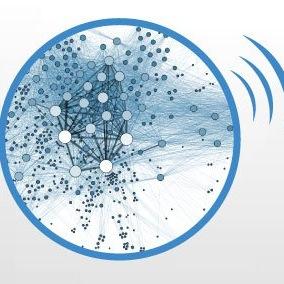The World Economic Forum has today launched 37 initiatives across six continents as part of a multi-year effort to shape the development of the Internet of Things, to improve security, governance and aid the safe distribution of COVID-19 vaccines.
The pandemic has “accelerated” remote working, telehealth, distance learning and automation, according to a new report from the WEF's Global Internet of Things Council and PwC.
The pandemic is also boosting adoption of wearable technologies like fitness trackers and smart-home devices. “As the dependency on connected technologies increases, so do the associated risks and the need for good governance,” said the WEF.
According to the State of the Connected World report, based on surveys and interviews with more than 400 subject matter experts worldwide, the requirements of IoT going forward are building transparency and trust into the heart of IoT technologies, ensuring public privacy and data security and providing equal access for all.
In addition, there is the need to “incentivise” the use of IoT to “help solve humankind’s biggest challenges”, and to “bring people together” to create a global consensus on these critical issues.
As part of its drive to support these IoT priorities, the WEF has launched the 37 initiatives, which are supported by the likes of Consumers International, Carnegie Mellon University, Zigbee Alliance, UL, Arçelik and Libelium.
They are launching a global coalition to improve the trustworthiness of consumer IoT devices and to help consumers better understand the benefits and risks associated with these products.
Action will focus on building consensus on device safeguards and standards throughout the ecosystem of internet-enabled consumer electronic devices, including voice assistants, security cameras and wearable technologies.
This work will be complemented by an emerging public-private partnership including Helpful Places, Digital Public Square and the City of Boston, who are working to increase transparency and signage for the use of digital technologies in public spaces.
Brazil, Colombia, Kazahkstan, South Africa and Turkey are also working together to help build the technological capacity of small and medium-sized enterprises. The partnership aims to reach more than 5,000 companies within the next three years with new training and support services.
And 36 cities around the world, including Buenos Aires, Istanbul, London, Medellín and Mexico City, will pioneer a global policy road map for the responsible and ethical use of connected technologies as part of the G20 Global Smart Cities Alliance. This includes the launch of new policies related to privacy, security and digital infrastructure.
The WEF aims to develop this work through a year-long series of activities, which formally begin on 10 December 2020. An initial report to document progress on the global action plan will be shared as part of the WEF's Global Technology Governance Summit on 6-7 April 2020.
“With the emergence of 5G and IoT, we are on the cusp of unleashing the power of the Fourth Industrial Revolution and enabling the digital transformation of industries around the world,” said Cristiano Amon, president of Qualcomm and co-chair of the WEF's Global IoT Council.
“The combination of these essential technologies has the potential to shape the future of the internet, connecting everything to the cloud. Through the Council’s close collaboration with ecosystem partners, governments and policy-makers, we strive to ensure privacy, security and equity in the design and deployment of IoT systems.”
Mohamed Kande, vice-chair, global advisory leader at PwC, said: “This report highlights the enormous potential for IoT to accelerate sustainable and equitable growth, especially as it relates to equipping the next generation with critical skills to take advantage of these emerging technologies.”
He added: “These insights couldn’t be more timely as IoT has been used to reduce business interruption and improve workforce safety during the COVID-19 pandemic with contact tracing and other preventative applications. It will also have a critical role to play in solving the global challenge to manufacture and distribute COVID-19 vaccines.”
Latest News
-
ICO predicts shopping 'AI-gents' could arrive in next 5 years
-
Stripe teams up with Crypto.com to boost payment solutions
-
Over half of UK CFOs more optimistic about AI’s potential, finds Deloitte
-
Universal Music Group partners with Nvidia to create antidote for 'AI slop’
-
East of England Co-op finalises test of digital shelf edge communication platform
-
Barclays makes strategic investment in Ubyx
The future-ready CFO: Driving strategic growth and innovation
This National Technology News webinar sponsored by Sage will explore how CFOs can leverage their unique blend of financial acumen, technological savvy, and strategic mindset to foster cross-functional collaboration and shape overall company direction. Attendees will gain insights into breaking down operational silos, aligning goals across departments like IT, operations, HR, and marketing, and utilising technology to enable real-time data sharing and visibility.
The corporate roadmap to payment excellence: Keeping pace with emerging trends to maximise growth opportunities
In today's rapidly evolving finance and accounting landscape, one of the biggest challenges organisations face is attracting and retaining top talent. As automation and AI revolutionise the profession, finance teams require new skillsets centred on analysis, collaboration, and strategic thinking to drive sustainable competitive advantage.
© 2019 Perspective Publishing Privacy & Cookies








Recent Stories